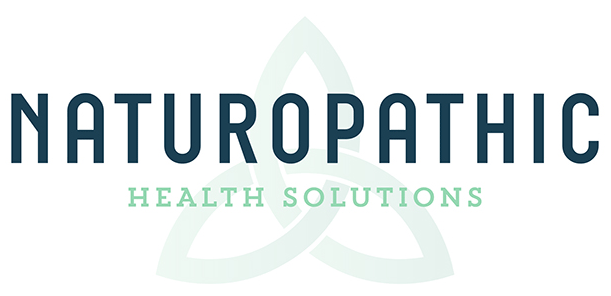Are you experiencing gut health issues which effect your daily life? Do you feel bloated or just uncomfortable after each meal? Are you feeling sluggish of fatigue throughout the day? Then you may have a compromised gut which may be referred to leaky gut syndrome.
Leaky gut syndrome
According to the Harvard Medical School leaky gut, aka intestinal hyper-permeability is a very common gut health issue which effects everyone to some degree.
Leaky gut not only effects the gastro-intestinal system, but also the immune system, the nervous system and the endocrine system. In other words leaky gut cause the following:
– Compromise digestion and absorption of food. Effecting distribution of nutrients within the body.
– Weaken your immune system and is the main driver of autoimmune disease. Cause systemic inflammation.
– Cause mood disorders such as anxiety and depression.
– Result in low energy, fatigue or chronic fatigue syndrome.
– Is the main driver of almost every known disease in the world today, due to gut inflammation.
If you are experiencing any of the following gut symptoms then you may have leaky gut syndrome. Symptoms include abdominal discomfort, bloating, burping, flatulence, nausea, reflux, vomiting, uncontrollable weight gain or weight loss, irregular bowel movements, constipation and diarrhoea.
Causes of leaky gut syndrome
– Gluten – gluten can be found in most packaged foods, grains (oats, rye, spelt, barley, wheat, triticale, derum, kamut etc) sauces, medications, supplements and cosmetics.
– Genetically modified organisms (GMO) wheat, corn and soy. Also non-GMO versions.
– Processed sugars/carbohydrates – bread, pasta, cereal, crackers, biscuits, chocolates, ice creams, sauces etc.
– Excessive Alcohol intake – especially beer.
– Medication – most of them do but in particular NSAIDS (non-steroidal anti-inflammatories) and antibiotics
– Stress.
– Inflammation.
– Poor dietary choices – nutrients deficiencies and fast foods.
– Artificial additives – colours, flavours, sweeteners, preservatives, (MSG) monosodium glutamate.
– Herbicides, insecticides, pesticides, fungicides and germicides.
– Smoking.
– Recreational drugs.
– Heavy metals and synthetic chemicals
Other diseases associated with leaky gut
– Crohn’s disease
– Ulcerative colitis, ulcers
– Small intestinal bacterial overgrowth (SIBO)
– Dysbiosis (imbalance of microbes/bacteria)
– Compromised microbiome (gut environment)
– Celiac disease
– Irritable bowel syndrome
– Food allergies
– All Autoimmune disease – Psoriasis, hypothyroidism (Hashimoto disease), hyperthyroidism (Graves disease), metabolic syndrome, diabetes, multiple sclerosis (MS), Systemic lupus erythematosus (lupus), Rheumatoid arthritis. Up to 80 autoimmune conditions.
– Pain and inflammation.
– Lectins and lipo-polysaccharides.
WAYS TO IMPROVE GUT HEALTH
– STAY HYDRATED. Staying hydrated improves overall cellular hydration and bowel movements. Water calculation: 30ml x weight in kg is needed per day to avoid dehydration. Up to 50ml x weight in kg per day when exercising.
– CONSUME 25-30g of fibre per day. Eat fibre containing foods such as leafy green vegetables, fruits, nuts, seeds and legumes to help improve bowel movements.
– EAT ORGANIC. Non-organic foods which use glyphosate (roundup pesticide) and has the capacity to destroy your gut microbiome healthy bacteria and it’s environment). Avoid it if possible.
– EAT BITTER FOODS. Eat bitter foods such as broccoli, cabbage, kale, radish, bitter melon, apple cider vinegar, lemon and dandelion greens. They will help stimulate digestive acids and digestive enzymes to improve overall digestive function.
– EAT FOODS WHICH CONTAIN PREBIOTICS AND PROBIOTICS. Prebiotics feed your probiotics so they can be more effective in doing their job. Prebiotic foods include asparagus, onions, garlic, artichoke and legumes. Probiotics are your good microbes fighting the constant battle in your gut to improve overall gut function, immunity and health. Probiotic foods include fermented vegetables, kefir, yogurt, coconut yogurt and kombucha.
– AVOID GLUTEN. Gluten containing foods can destroy your gut lining, which can lead to leaky gut syndrome and autoimmune disease. It is best to avoid both gluten and gluten-free processed foods. Certain grains can be pro-inflammatory and cause the same damaging effects of gluten containing foods. It’s best to stick to an organic whole-food diet.
– AVOID EVERYTHING LISTED IN THE CAUSES OF LEAKY GUT SYNDROME.
– REST & DIGEST – Never eat on the run or under stress as it may impair digestive function. It’s best to sit down whilst eating at each meal to allow your parasympathetic nervous system to do its job.
– CONSUME BONE BROTHS REGULARLY – bone broths have the essential nutrients requires to rebuild a compromised gut.
– BALANCE DIET – Eat a low carbohydrate, moderate protein and high fat diet.
If you are experiencing gut issues, inflammation or any type of autoimmune disease, call our office and find out how we can help you.

